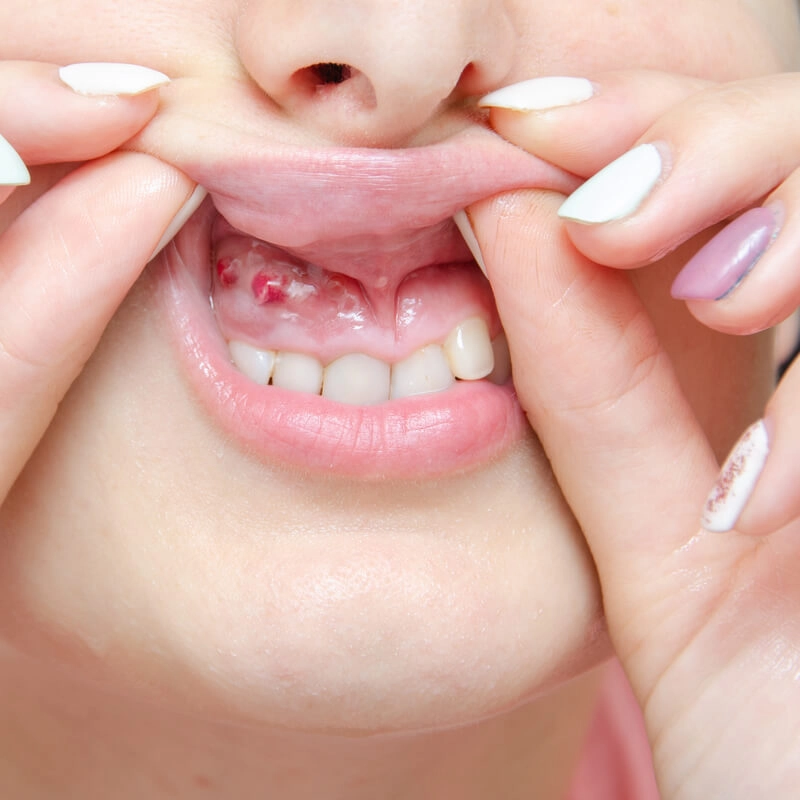Home/Wellness Zone/Sakra Blogs
26th Feb, 2021

The term pyorrhea comes from the Greek words Discharge of Pus.
Pyorrhea, also known as periodontitis, is a multifactorial disease that directly affects oral gums and the bone. Yes, Pyorrhea affects the periodontium, that is, the organ that holds up the teeth and is made up of gingiva, bone, and ligament. Pyorrhea is bacterial in nature and is the result of advanced or untreated gingivitis.
Types of Pyorrhea
These are some of the most common types of Pyorrhea:
Chronic Pyorrhea: This is the most common type of pyorrhea. It is caused by gradual plaque buildup, which then causes gum recession and bone deterioration. This can get worse or improve based on how soon it has been treated. This type of Pyorrhea is known to mostly affect adults, but in no way does it mean that children are immune to it. Children too can be prone to Chronic Pyorrhea if dental hygiene is neglected.
Aggressive Pyorrhea: It is a hereditary type of Pyorrhea. And since it's hereditary, you would need your family to get checked for Pyorrhea too if you have been suffering from it. The reason it is called Aggressive Pyorrhea is, if it is left untreated, this destructive pyorrhea type will cause rapid progression of bone loss, eventually causing tooth loss or a fracture.
Necrotizing Pyorrhea: This is the worst type of pyorrhea that involves the death of supporting bone, gum tissue and tooth ligaments caused by lack of blood supply, which eventually results in severe infection. Necrotizing Pyorrhea mostly affects people who have a weak immune system, which may be due to HIV infection or cancer treatment. Malnutrition and poor food habits can also be a cause.
What are the signs and symptoms of Pyorrhea?
As Pyorrhea progresses from gingivitis, it starts showing major signs and symptoms. A few of the major symptoms are as listed below:
Swollen or puffy gums
Bad breath
Loose teeth or Gums that bleed easily
Painful chewing
Pus between the teeth and gums
Tender and sensitive gums
Bleeding when flossing or brushing
Deep pockets form between the gums and the teeth
Gums that recede, making your teeth look longer than normal
Bleeding when eating fruits like Apple, Guava, etc.
What are the causes of Pyorrhea?
Lack of dental hygiene is the foremost reason. Besides this, inheriting it from your parents or family members is also possible as this is a hereditary disease.
Here are some common causes of pyorrhea:
Poor dental habits: Irregular brushing and flossing allow bacteria to grow rapidly. Flossing should be a very important part of your dental hygiene as it helps in scraping the plaque and the remnants of rotting food in between the spaces of your teeth which are responsible for bacteria growth. When you’re complacent with your dental habits to the point where the coating of plaque on your teeth becomes tartar, it leads to dental destruction causing Pyorrhea.
Periodontal Destruction: Pyorrhea is caused by the destruction of the periodontium tissue that keeps the teeth anchored to the gums and jawbone. Improper dental hygiene is what kills this tissue. But although periodontal disease is initiated by bacteria, an intermediate mechanism that lies between bacterial stimulation and tissue destruction is the production of cytokines. The presence of cytokines in increased levels causes the destruction of periodontium tissue.
Gingivitis or Periodontal Disease: Plaque, when left untreated causes gingivitis, which is the mildest form of periodontal disease. This condition is defined as inflammation and irritation of the gum around the base of the teeth. Gingivitis is reversible with good oral care and professional dental treatment. When you fail to treat gingivitis, it worsens and develops into pyorrhea or periodontitis.
Diabetes and Pyorrhea: If you are a diabetic patient, your chances of developing Pyorrhea also increase. Diabetics patients are more likely to develop dental issues.
Smoking: Smoking tobacco is also one of the causes of developing pyorrhea or periodontitis.
Pyorrhea is reversible but that does not mean you can take your chances. While you have dental treatment options to save your teeth, remember if the disease reaches a point of no return you might not be able to save some or all of your teeth. Therefore, we keep emphasizing maintaining your oral hygiene and visiting your dentist regularly.
Sakra World Hospital has the best dentist in Bangalore experienced in treating any kind of dental conditions. For pyorrhea treatment in Bangalore consult the best dental hospital near you.
Here are ways you can prevent Pyorrhea:
Brushing, flossing and using mouthwash
Regular Dental Visit - Make sure to visit your dentist at least every 6 months, this aids in diagnosing the early signs and symptoms and treating them in their early stages to avoid further complications
Scaling - To remove hard tartar, trapped food, and plaque which is the primary cause of bacteria growth
Root Planing - This makes the rough teeth surfaces smooth and removes any subgingival bacteria. During the procedure, the dentist will also deep clean around and below the gums to remove plaque and tartar buildup.
If left untreated, Pyorrhea can cause bone and tissue damage, where you can also lose teeth. Besides the loss of the tooth, the infection could cause other health complications.
Thanks to modern dental technological advancements, Pyorrhea can be treated using laser treatment and hence becomes much easier to cure in a less invasive manner, unlike traditional surgical methods which are quite painful and invasive.
Sakra is the best dental hospital in Bangalore where we provide our patients with world-class dental treatments, from teeth whitening to laser dental treatments to curing periodontal disease. For all your dental care needs, reach out to us.
Enquire Now
